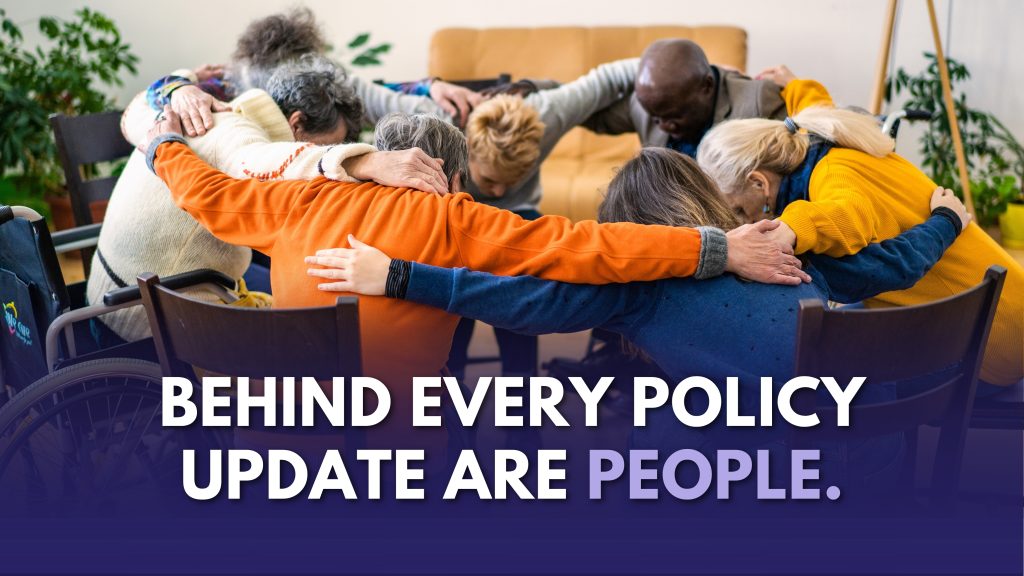In a landscape as complex and dynamic as the NDIS, one thing remains constant – can change. Policy reviews, funding realignments, and process updates are a recurring theme across every major community service sector. While these shifts are designed to improve systems, for those delivering frontline services, they can often feel like a whirlwind of new expectations, compliance adjustments, and shifting priorities.
The truth?
Navigating these evolving frameworks can be overwhelming. The NDIS has been undergoing significant reform, and as we look to the aged care sector and disability employment services beginning their own transitions, many providers are watching with empathy – remembering what it feels like to balance change management with participant-centred care.
But there’s good news: chaos doesn’t have to equal crisis. The key lies in how we adapt.
1. Focus on What You Can Control
It sounds logical when you say it out loud but when you’re deep in the throes it’s sometimes hard to see the forest for the trees. When change is constant, perspective becomes a powerful tool. It’s easy to get caught up in what’s uncertain – new compliance structures, documentation systems, or policy revisions. But by focusing on what can be done right now – maintaining high-quality care, communicating with participants, and ensuring teams are informed – providers can create stability in the areas that matter most.
2. Keep Communication Open and Honest
Internal communication is the cornerstone of resilience. Teams need clarity and reassurance during transitions. Holding regular check-ins, explaining the “why” behind each policy shift, and encouraging open conversations help staff feel supported and valued. Remember, uncertainty thrives in silence but collaboration grows through transparency.
3. Empower and Upskill Teams
Change is an opportunity to build capability. Investing in training, professional development, and clear resources allows teams to navigate new processes with confidence rather than fear. Whether it’s understanding a new reporting framework or adopting technology that streamlines compliance, upskilling transforms anxiety into empowerment. And when you have an empowered workforce magic truly does happen.
4. Prioritise Wellbeing
Behind every policy update are people. The passionate staff who want to deliver their best work. Encouraging breaks, maintaining manageable workloads, and fostering a supportive culture can prevent burnout and sustain morale. A team that feels cared for will care deeply for others and this is something we have seen, especially in recent months within Empowered Liveability as we’ve undergone not only changes with the NDIS and housing sector but as we adopted systems internally to support our management ethos.
5. Collaborate Across the Sector
No organisation needs to face change in isolation. Collaboration between providers, peak bodies, and allied sectors allows shared learning and collective problem-solving. The more we work together, the smoother these transitions become for both staff and participants alike. Collaboration is one of the most important tools in our toolbox because we prefer to see our sector counterparts as our collaborators, not our competitors.
6. Finding Strength in Adaptability
Policy and process change will always be part of the NDIS and broader care ecosystem. What defines success is how we respond. By embracing adaptability, maintaining open communication, and focusing on the impact we can make today, we transform uncertainty into growth.
At the end of the day, our purpose remains unchanged — delivering quality, compassionate, participant-centred services. And in the middle of constant reform, that’s the anchor that keeps us steady.
So, if we can leave you with one piece of advice from our team to yours it’s this – stop and look at how much you’ve already achieved, take a deep breath, and remember to reach out to your collaborators whether they are within your organisation or outside of it.

